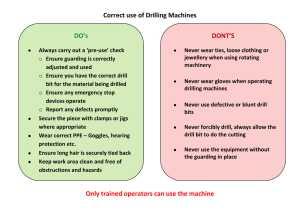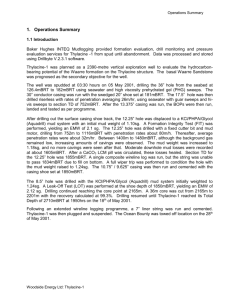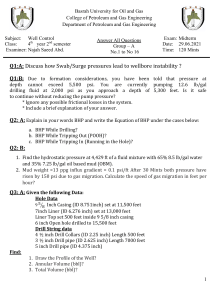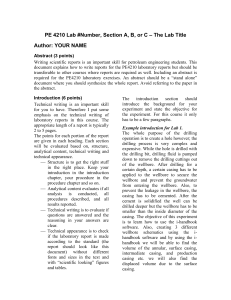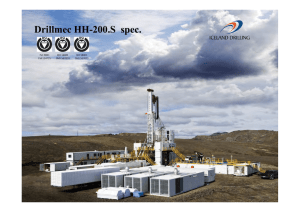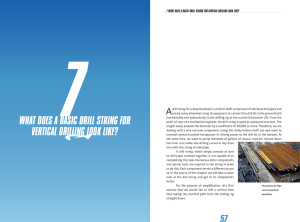Oil & Gas drilling
advertisement
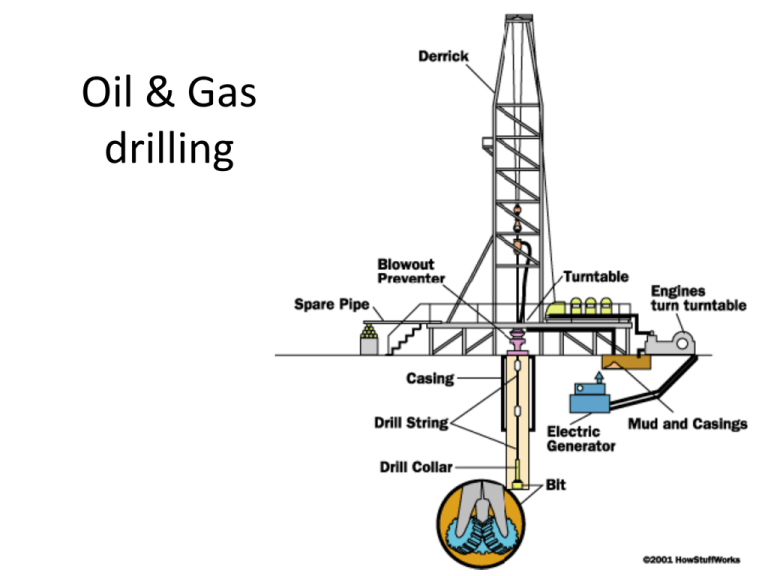
Oil & Gas drilling The BIT • Rotary drill bit designed to crush rock • Carbide or diamond impregnated steel Drilling Mud • Crushed rock has to get out of the hole, also the hole must be supported – use drilling mud to do both • Can use air, water, water with additives (clays, chemicals to affect viscosity and heat transfer), oil, and synthetic fluids Drill String • Combined term for the bit, the drill stem (hollow, turns the bit and pushes fluid down), annulus (outside the stem where the mud comes up), and drill collar (weight to ‘push’ bit down into the rock) Well casing • Casing is the tube (often steel) that is sealed to the borehole with cement – prevents leakage (in or out) and strengthens the hole Derrick / Platform • Working area for all drill operations, on land or at sea, engines, equipment, casing and string storage • Derrick is the part sticking up that feeds casing/string down the borehole • Also contains the machines for turning the drill string and bit, injecting and collecting the mud Striking Oil • What happens when the bit finally breaks through the capping formation and into the reservoir rock at an oil & gas trap? Blowout preventer • Device to control and stop erratic pressures and prevent a blowout
